The Sendai Tanabata Star Festival
We're seeing stars at the Sendai Tanabata Star Festival! One of Japan's most popular summer festivals, you'll be in awe at the festivities held every year in Sendai.
By Kim Yanghyeon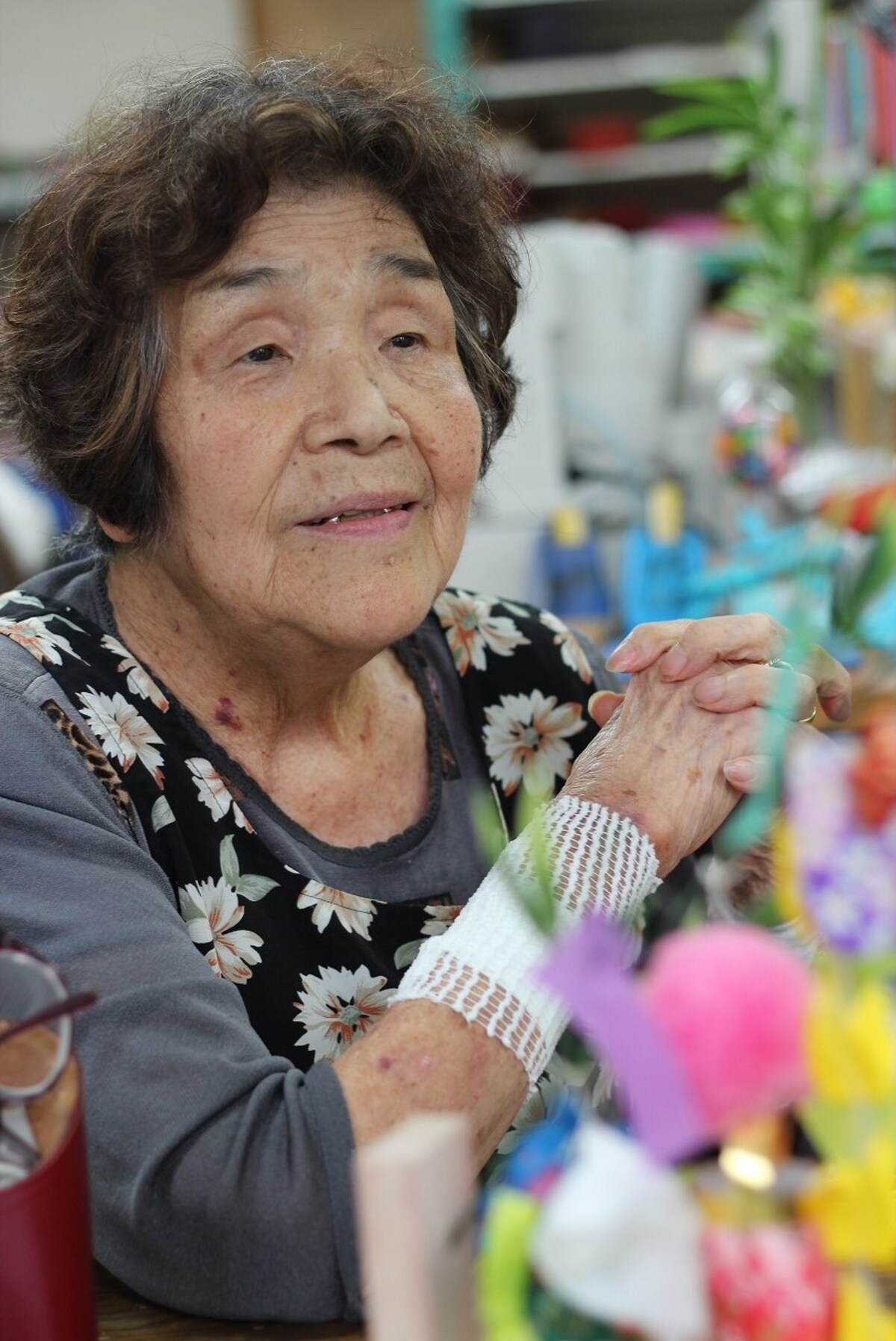
It took a bit more than an hour. With these seven decorations, my Tanabata Festival experience was complete, so I chatted with Ms. Yamamura about her 40 years of artistry.
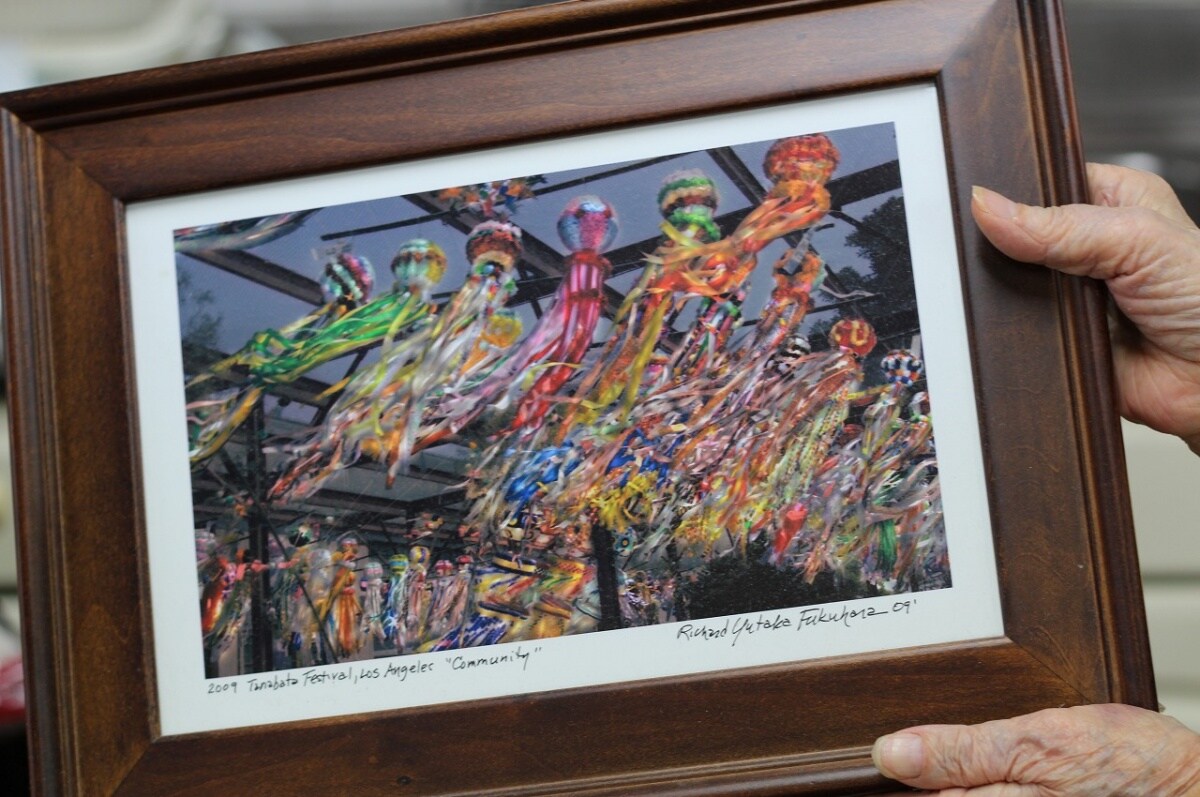
She showed me pictures of her handmade decorations that had gained global attention outside of Sendai. It was really interesting to hear about how she had gone back and forth to Los Angeles for several months in 2009 and how her Tanabata decorations had delighted people from the U.S. and swayed in the breeze where groups of Japanese expats lived.
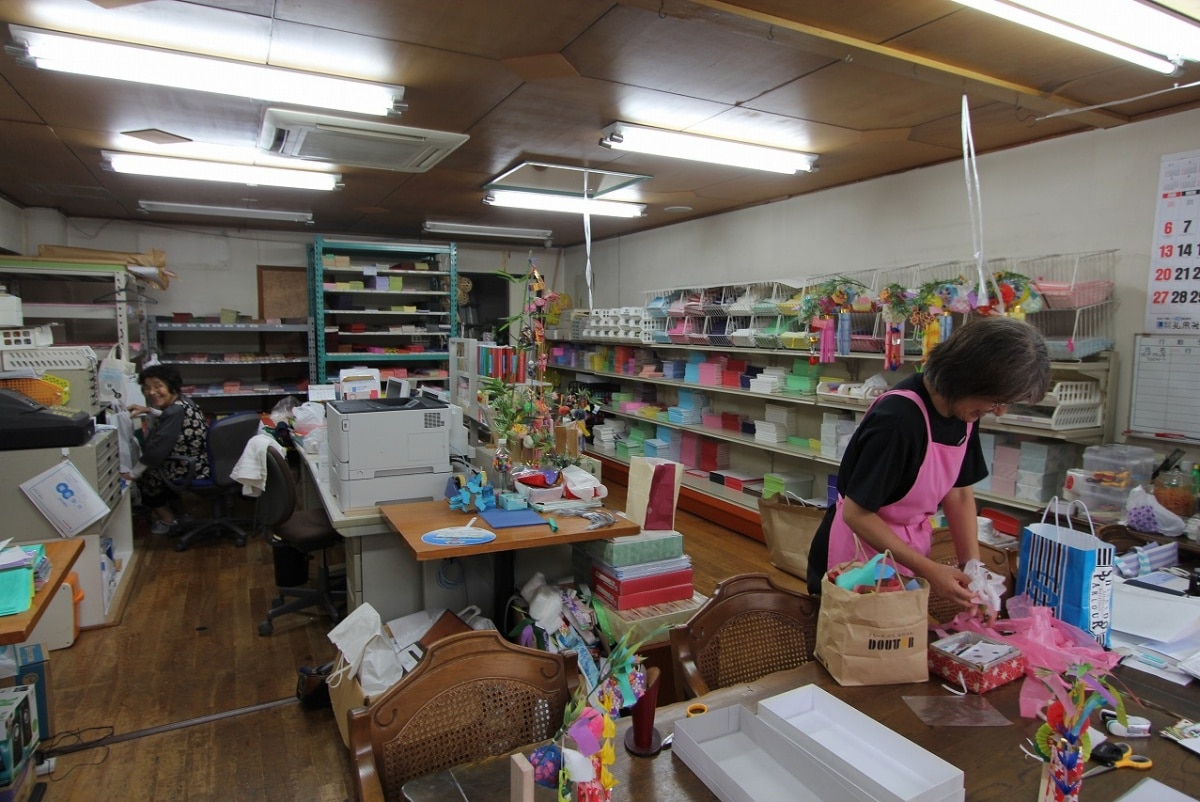
In her words, "The older Tanabata Festivals were calm. We don't know how great it was back then when the only sound was the rustling of the washi paper in the wind." She told me this as I said my goodbyes and wrapped up my ornaments so that I could put them up at home. I wonder how tranquil and beautiful the sound of the old-fashioned washi paper lilting in the breeze was.
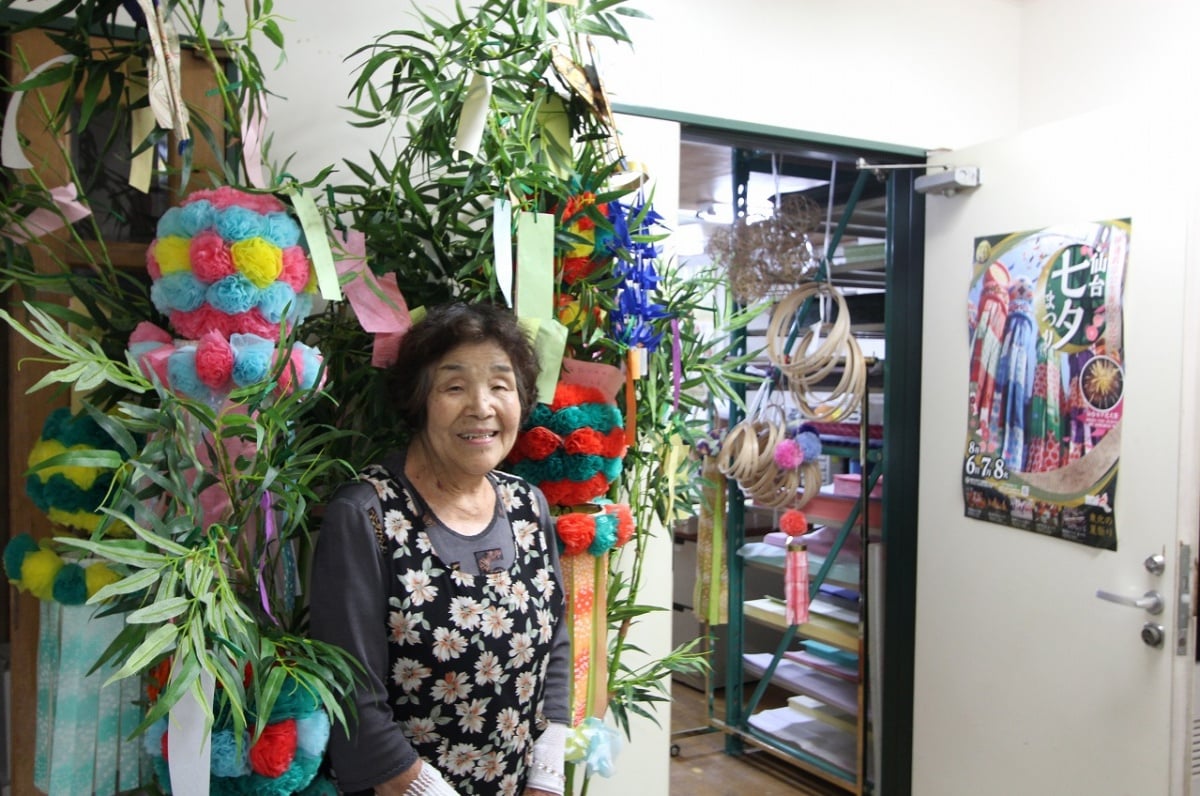
I said goodbye again and stepped out into the arcade to gaze some more at the Tanabata decorations. They took on a different appearance after hearing Ms. Yamamura's stories. I thought that just looking at the decorations was not enough—I also wanted to hear them move in the wind.

A soft gust came into the arcade and the ornaments swayed.
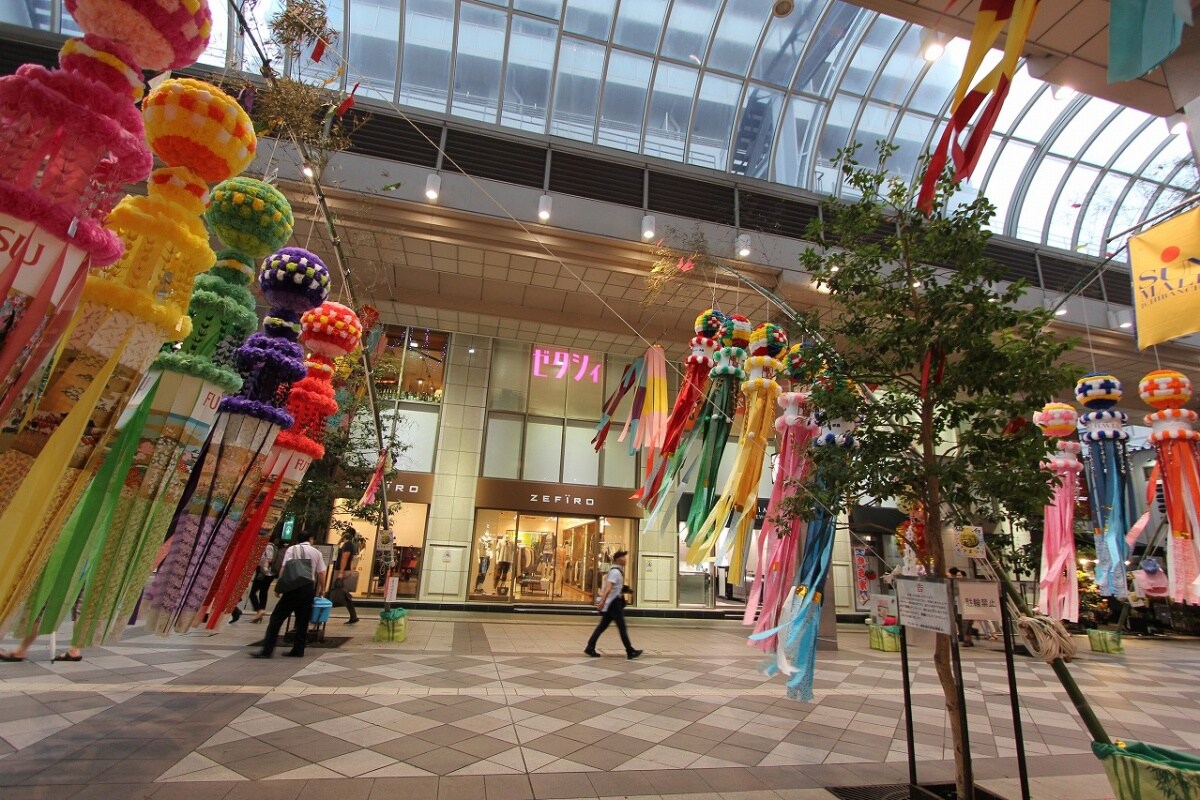
The breeze came over them little by little and as they moved, I could hear the sound. It was the soft sound of washi paper. And there was the sound of the air as well.
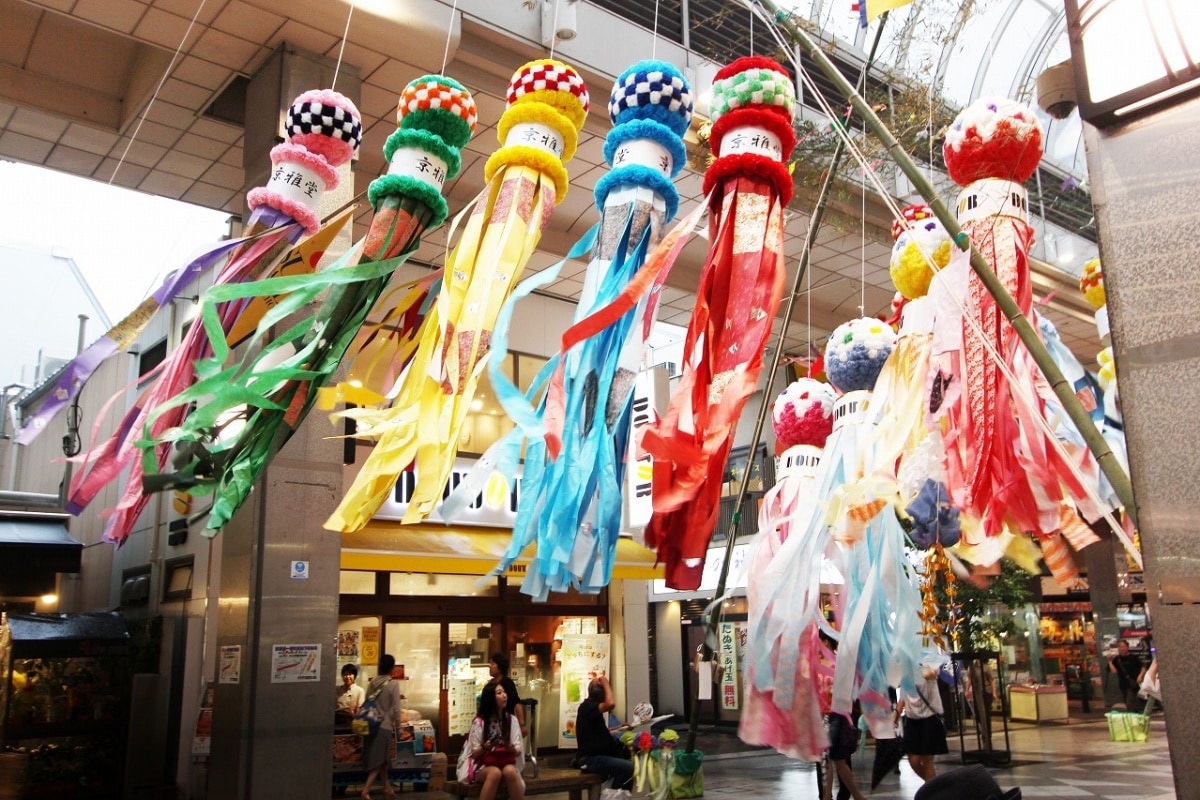
It made me want to sit quietly and just listen for a moment to the paper fluttering with the wind. I had the feeling that I would remember Ms. Yamamura's stories for quite some time.
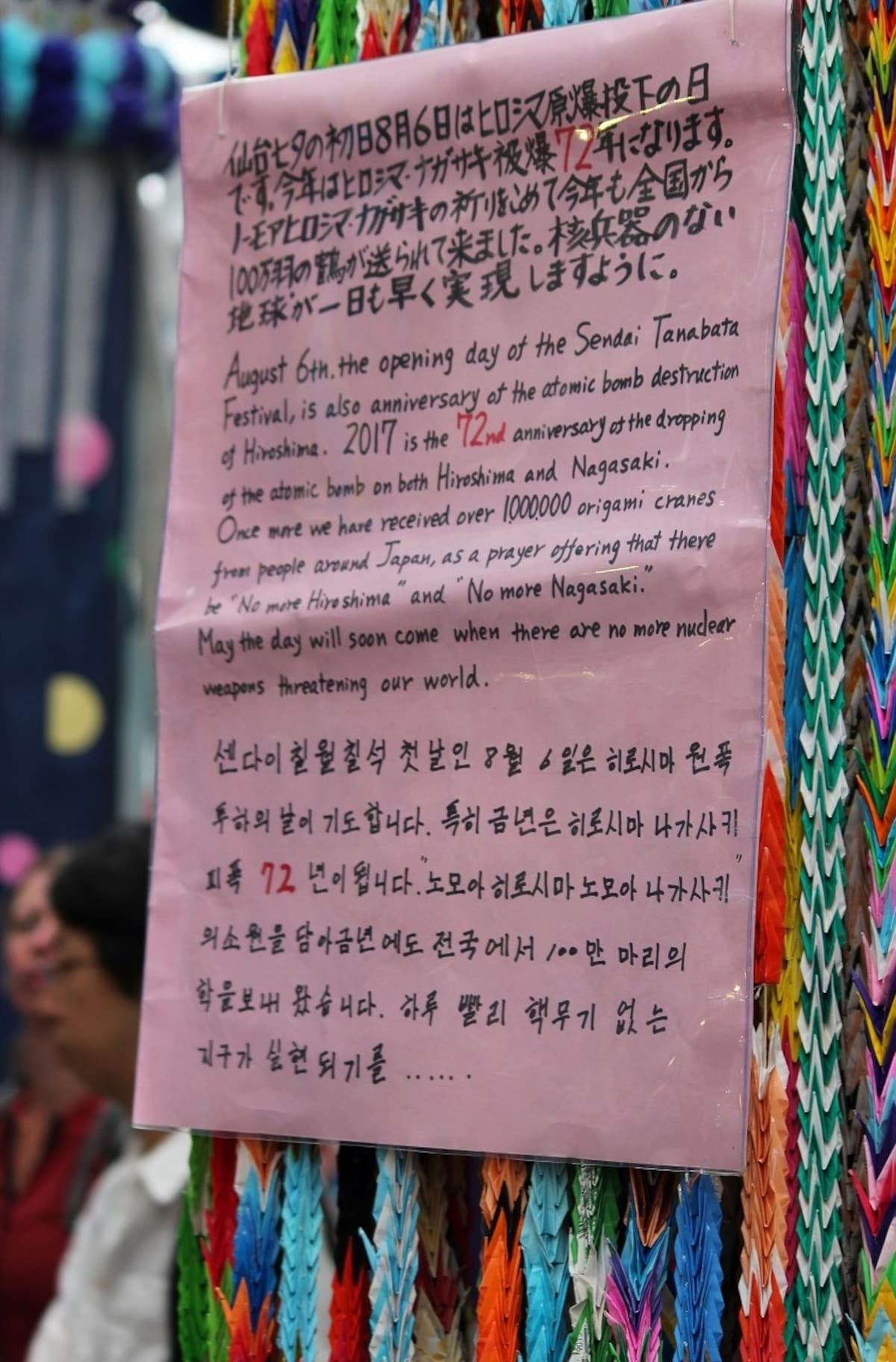
But there was more walking to do in the arcade, so I kept going and tried to feel the washi paper moving in the wind. After a little while, I noticed some writing in Korean. The seventh day of the seventh month of the lunar calendar marks the start of Sendai's Tanabata Festival in August and is also the day that the atomic bomb was dropped on Hiroshima.
72 years have passed since that event. Apparently, one million folded paper cranes are sent to Sendai from across Japan on this occasion every year.
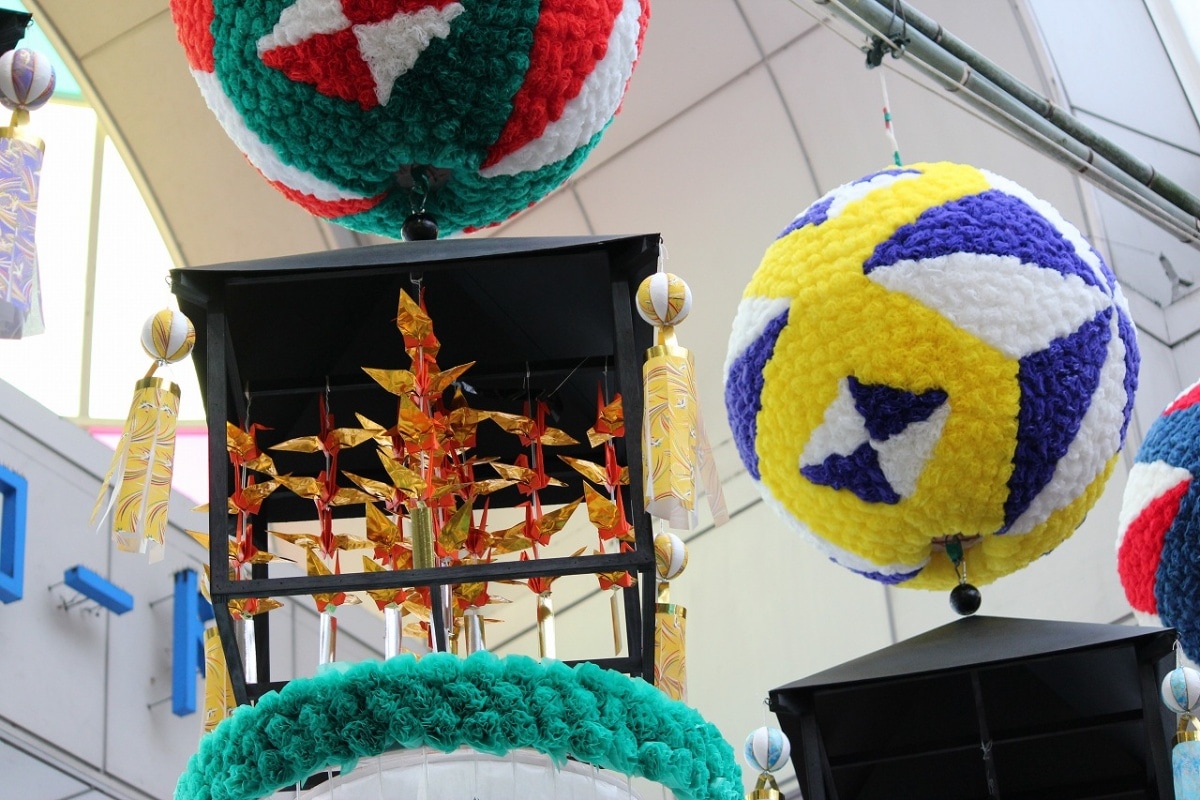
Sendai's Tanabata Festival encompasses a whole range of emotions. Among the beautiful decorations, I noticed smiles on the faces of people enjoying the festival.
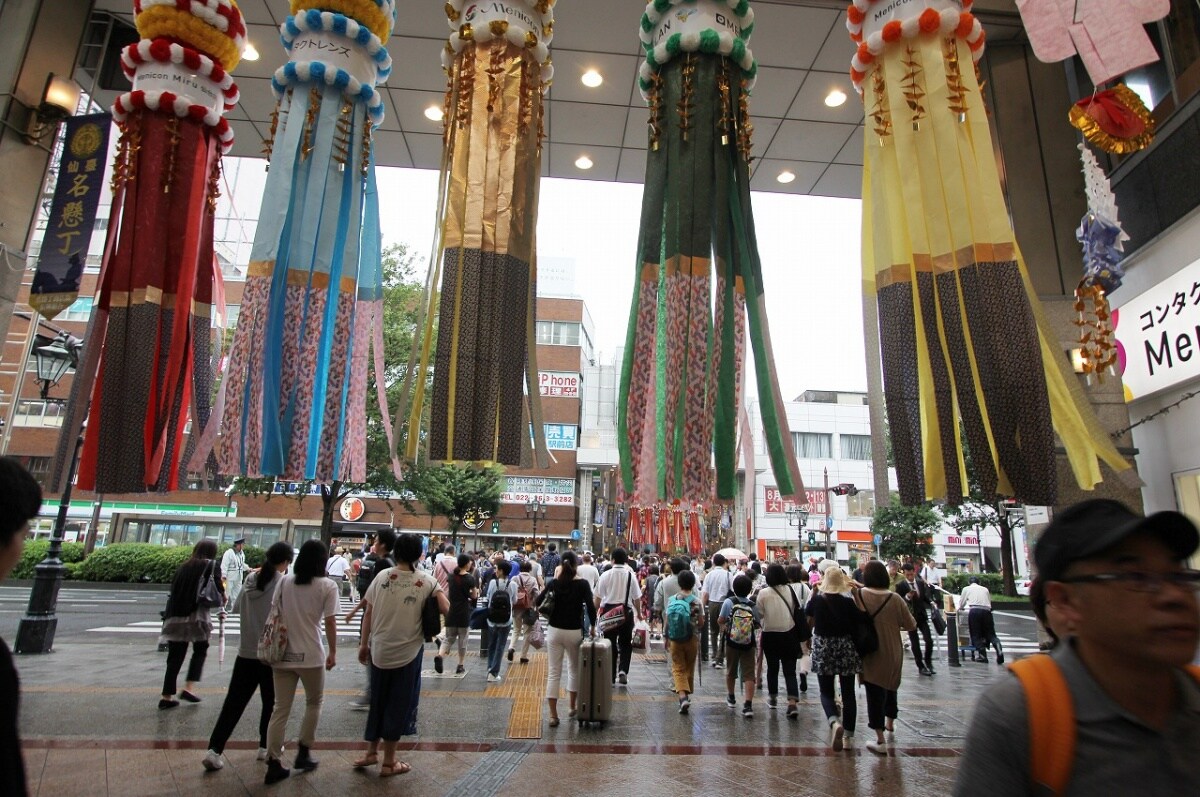
As I passed through the seemingly endless arcade, I came to yet another arcade. This is one of the charms of Sendai. Even if a typhoon brings rain showers, it is still just right for enjoying the washi paper of the Tanabata decorations.
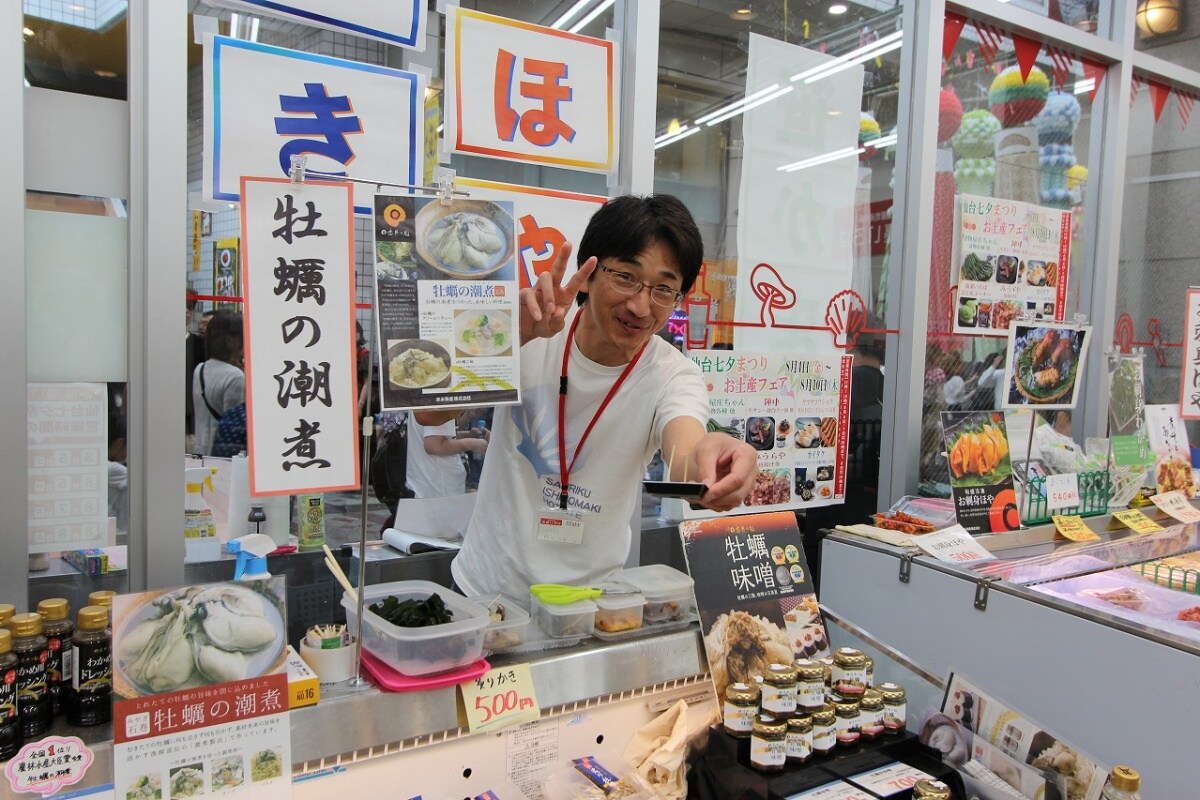
Food makes a perfect complement to enjoying the festival. I spoke to an older man selling Miyagi Prefecture's signature seafood. Hearing that I am Korean, he said, "Then you have to try the ascidians!" Which he let me do. Japanese people are not big consumers of ascidians, or sea squirts, but he guessed that Koreans like them.
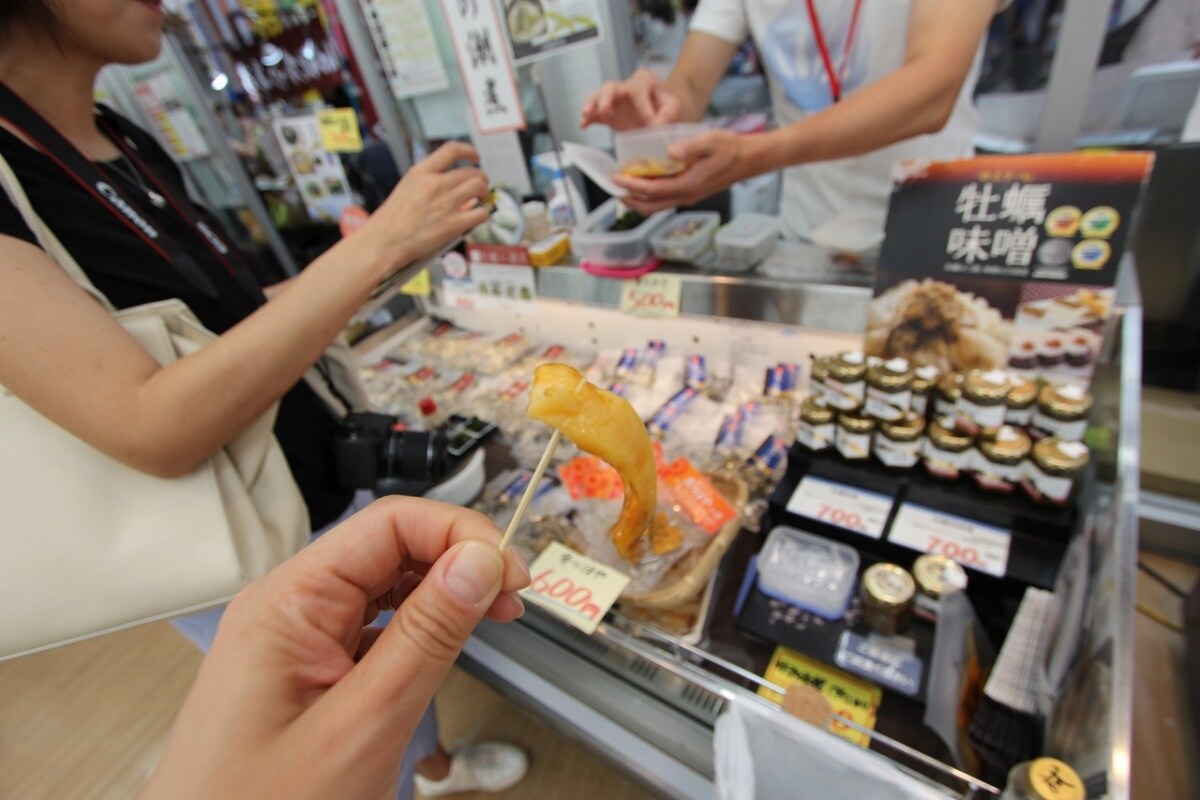
Wow! Miyagi's ascidians were much bigger than the ones in Korea. And delicious! Although they had been frozen and then thawed, special techniques were apparently used to ensure that they were especially fresh. I also tried Miyagi’s wakame seaweed and the very popular oysters before continuing my stroll.
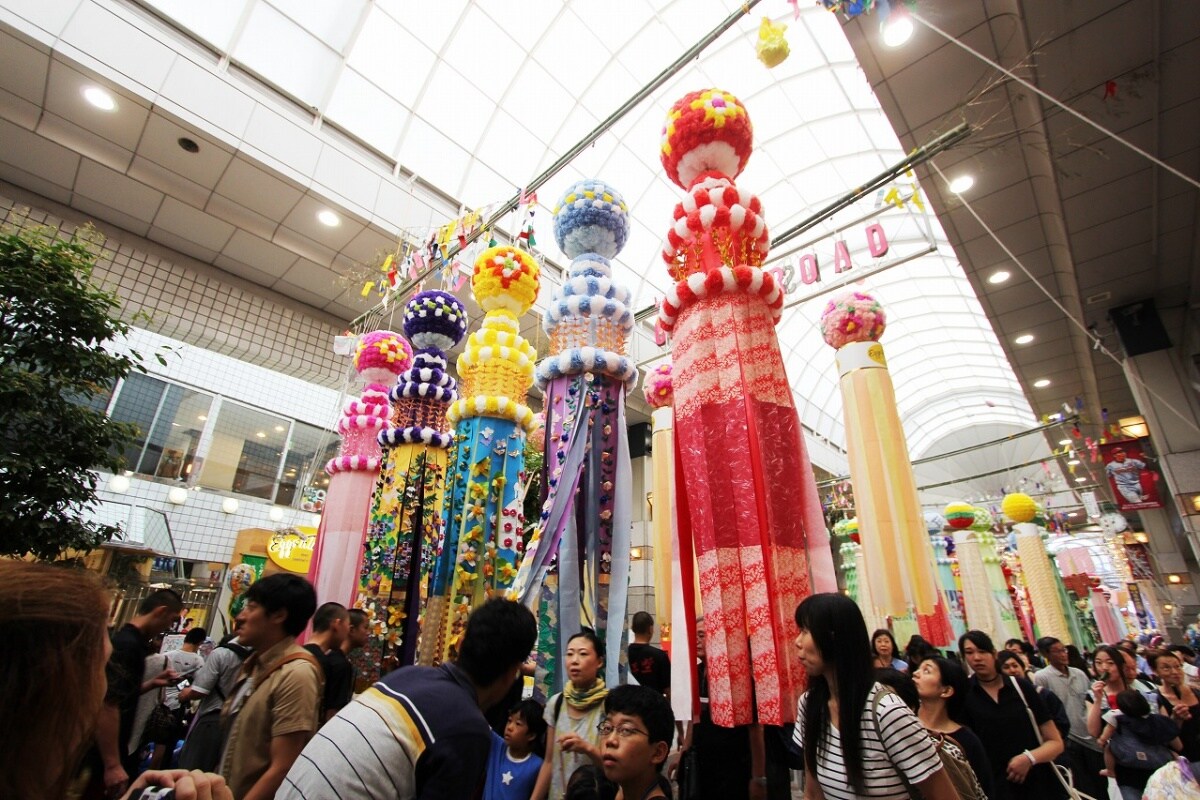
I was entranced at the thousands of decorations that were each unique and completely handmade. More than anything else, I felt that the best thing I gained was hearing Ms. Yamamura's stories about the sound of Japanese washi paper rustling in the wind.
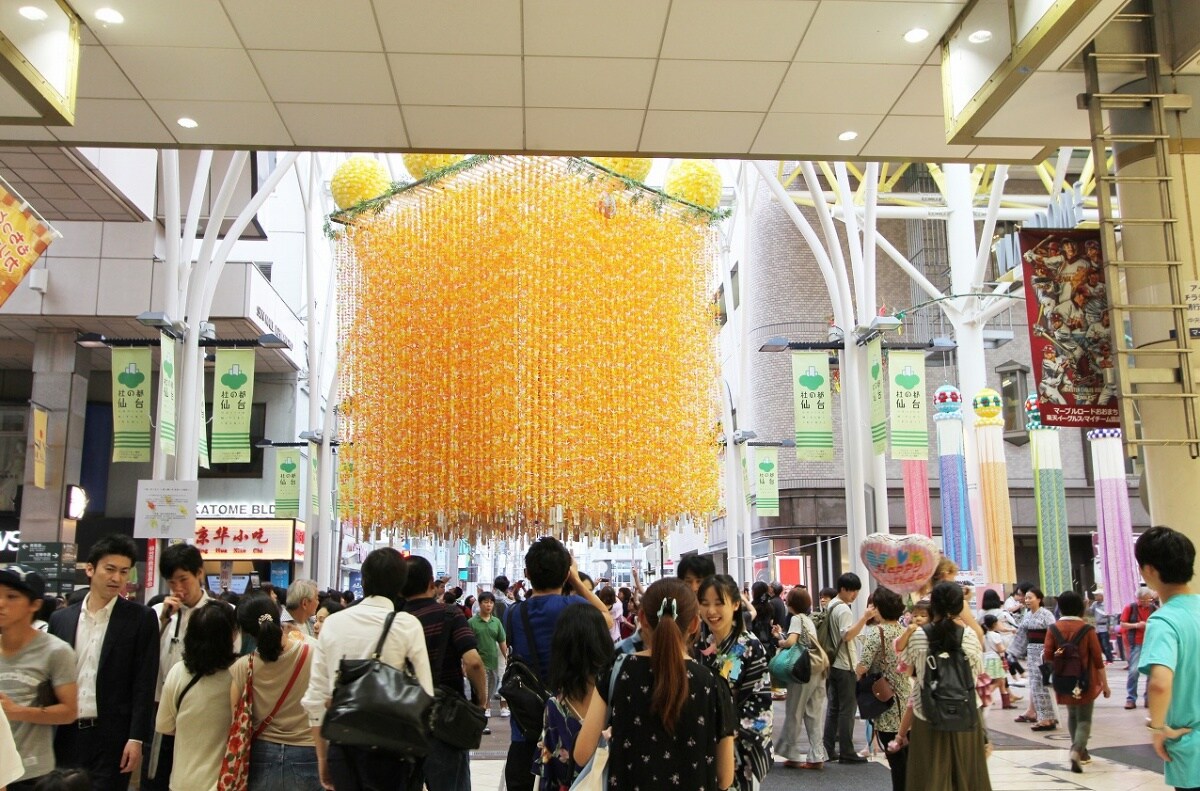
But, even more was in store for me! What was that beautiful golden melody?
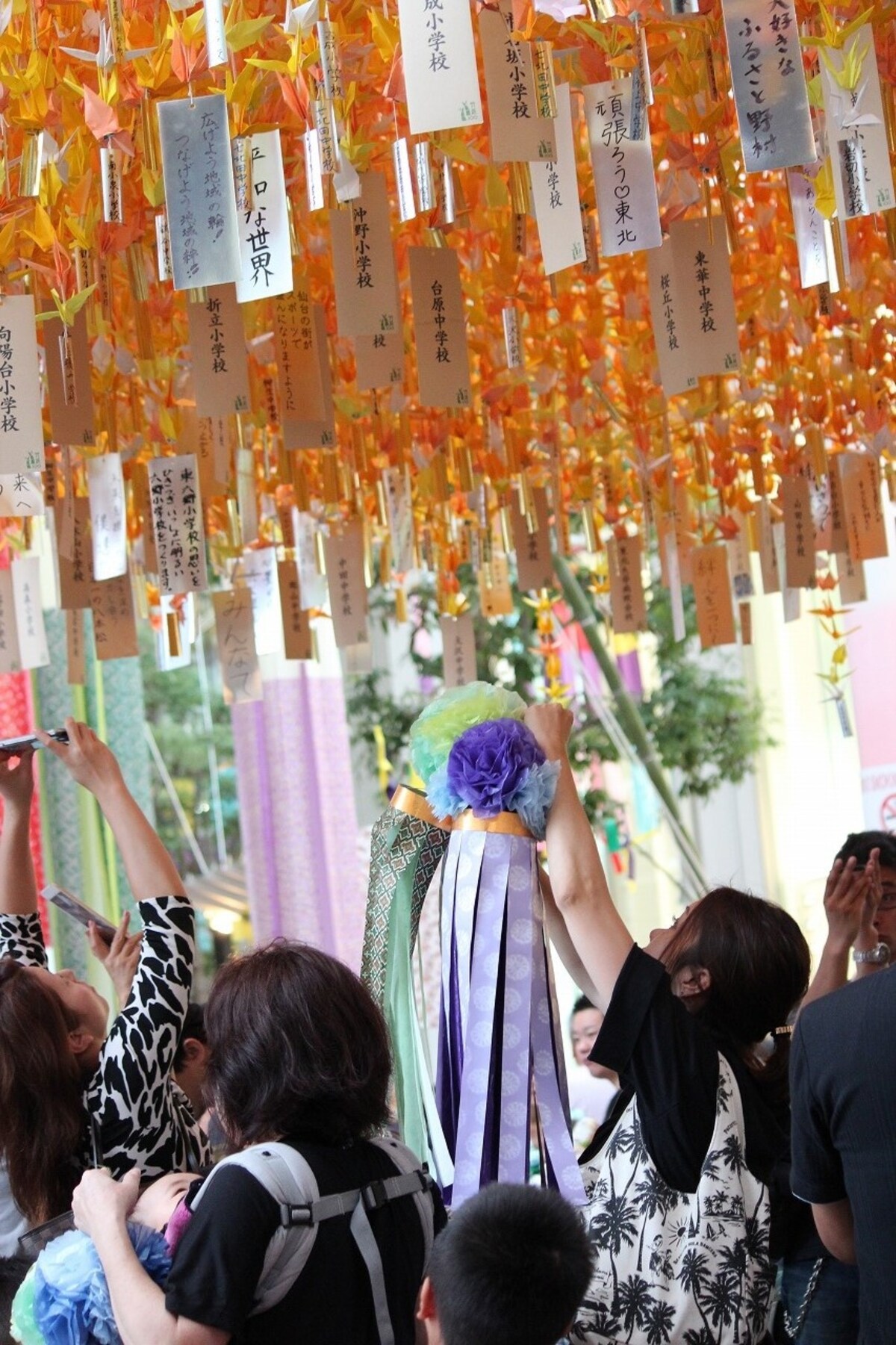
I was struck by how people were standing taking pictures with their arms stretched above them.
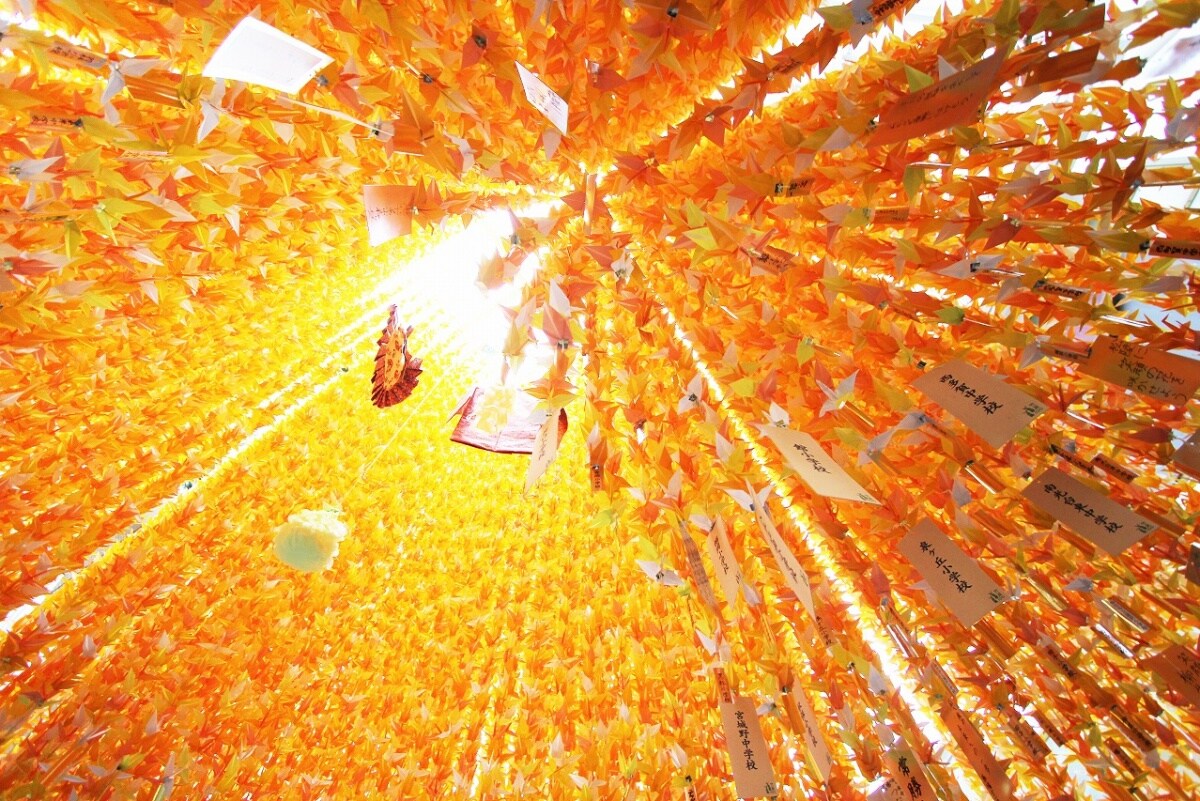
In the middle of that beautiful golden melody, I was again entranced while gazing upward. It was like a huge waterfall of cranes folded on golden paper was raining down.
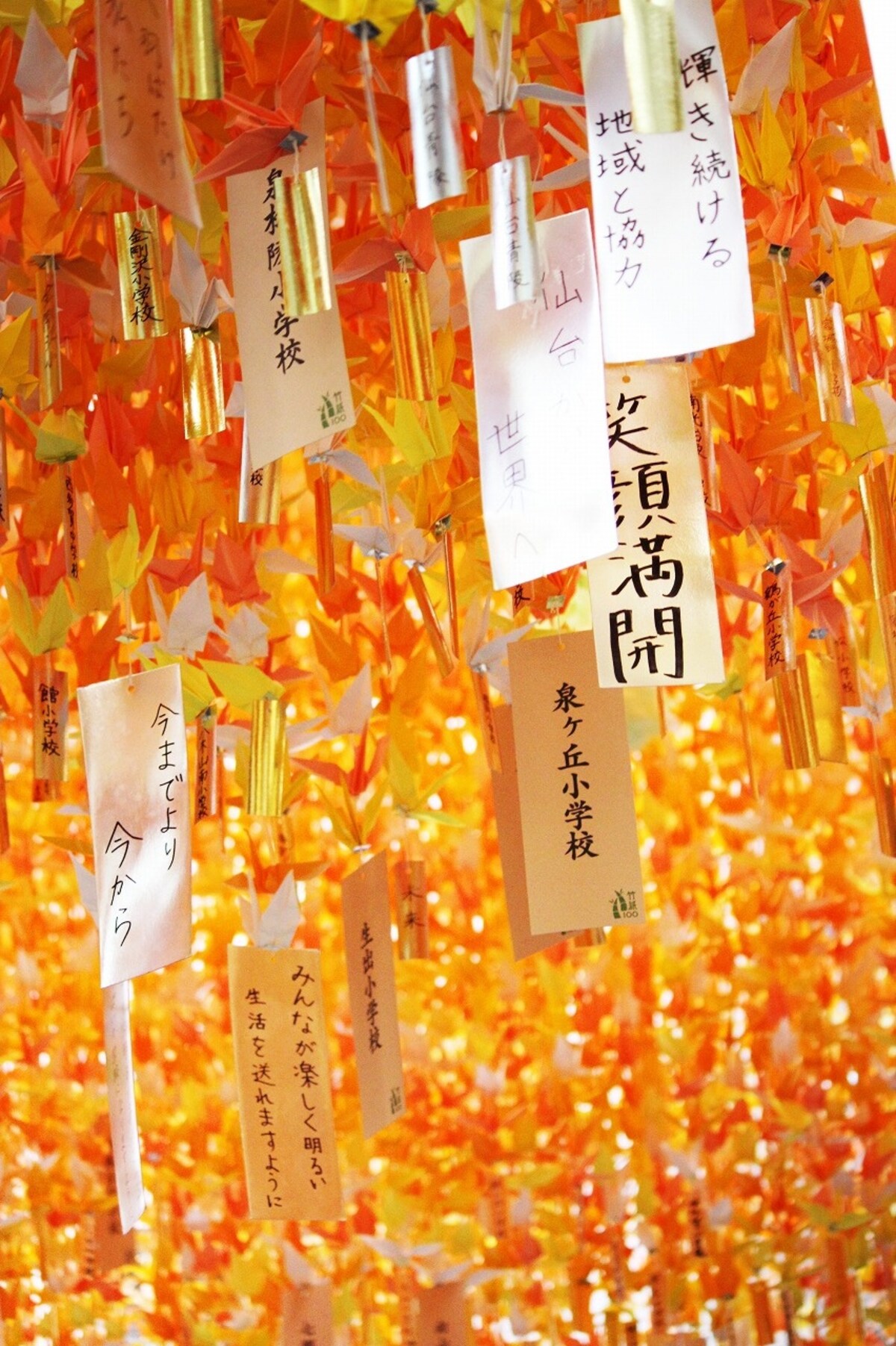
Words were written on them like little gems. The phrase that caught my attention most was, "From now on, not from then on."
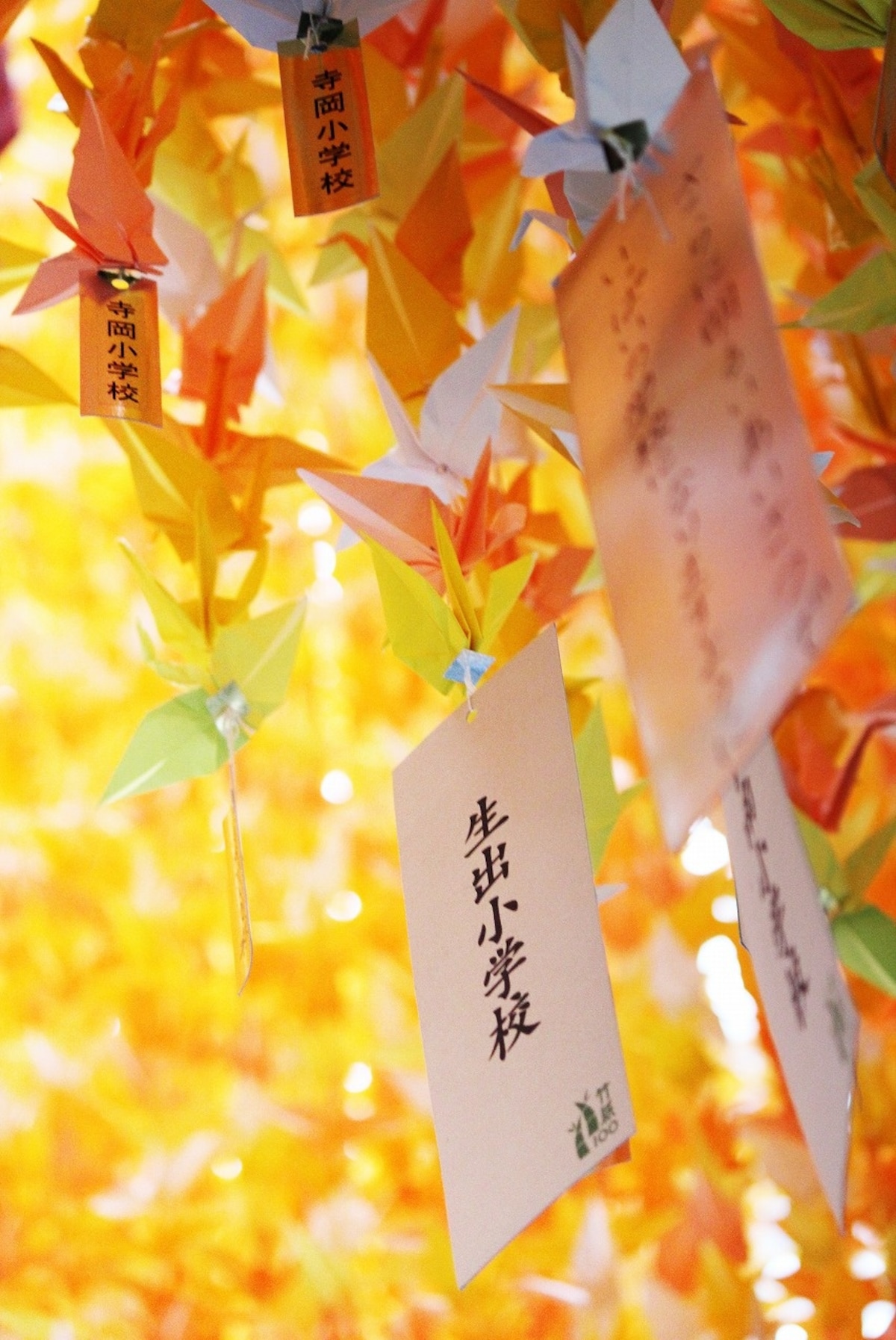
The cranes included the names of many different schools, which piqued my interest, so I asked a nearby volunteer. The Tanabata Festival really has a large number of volunteers who are always nearby throughout the arcade. With a bit of pride, the volunteer explained, "This display of 80,000 golden cranes was folded by elementary and middle school students here in Sendai." I am envious of Japan's matsuri (festival) culture.
That day when the typhoon came, the final day of the festival and a day enjoyed with the people of Sendai who make the event possible. This was a day also filled with many emotions from my conversations with these people.




